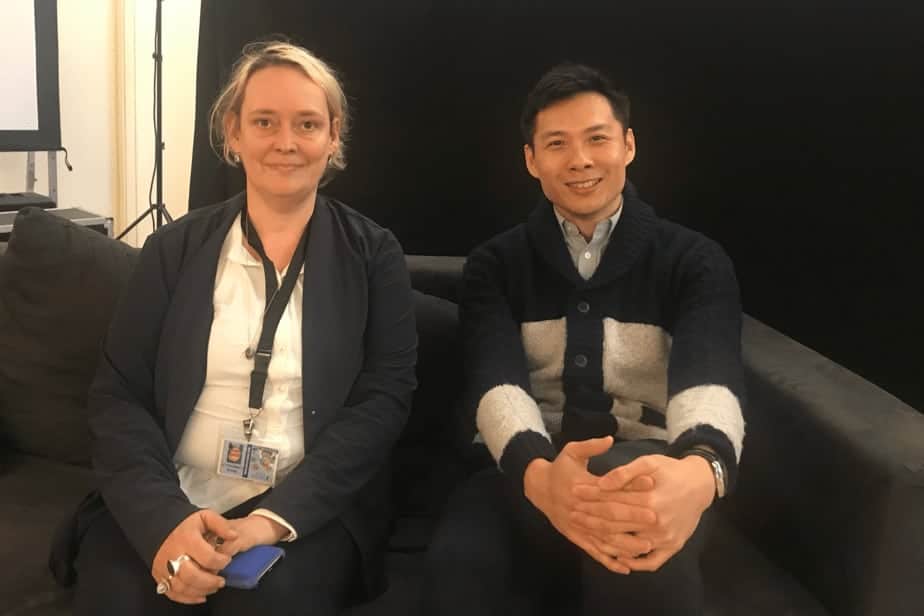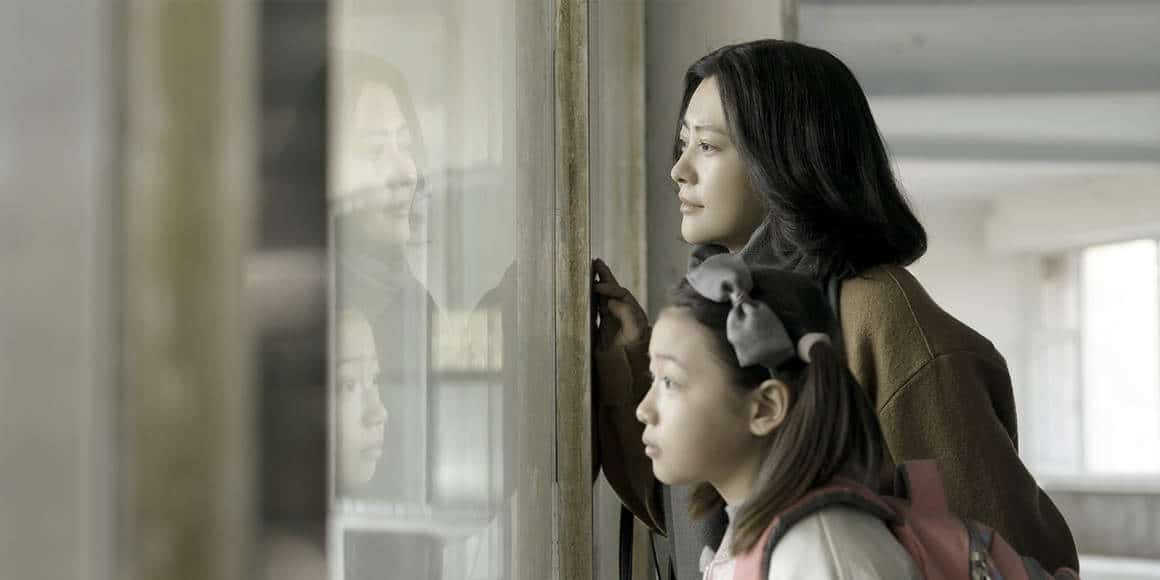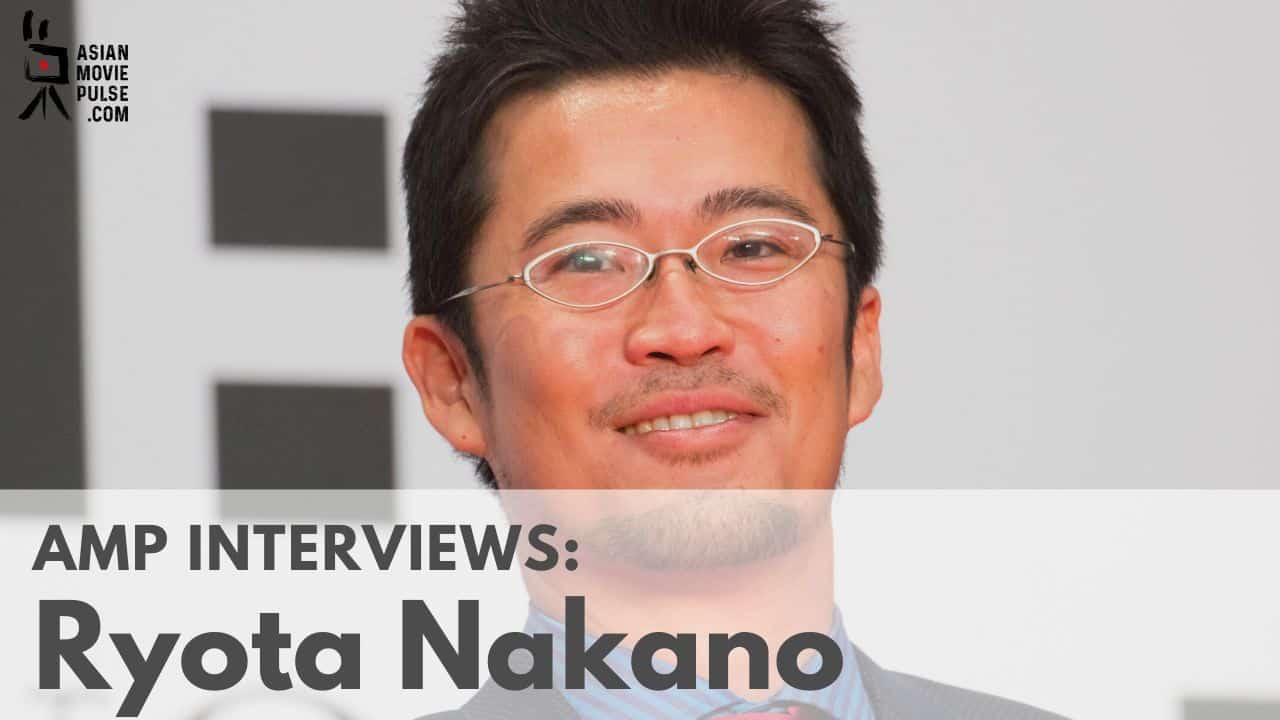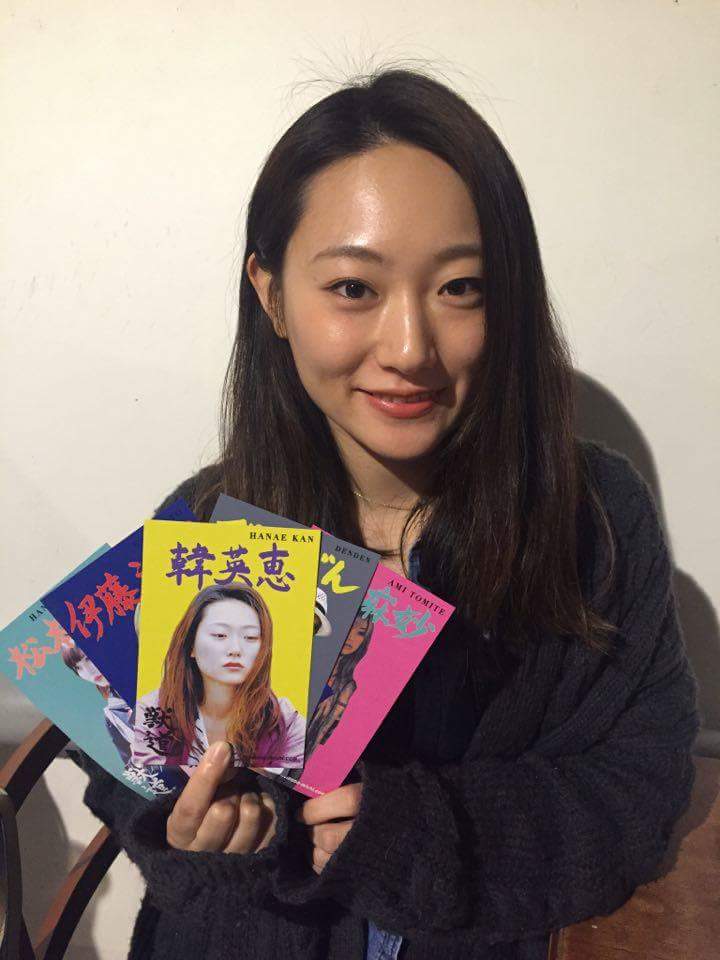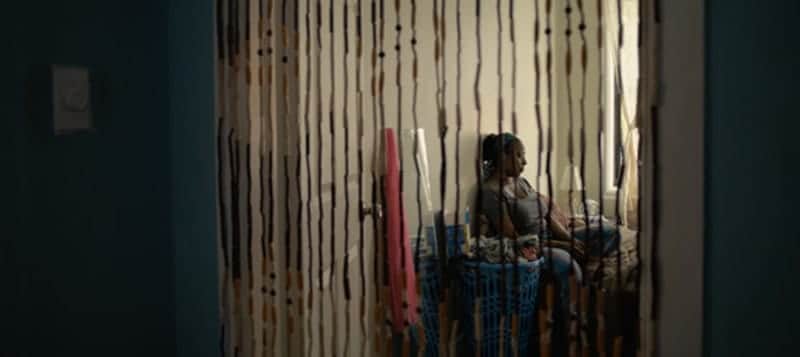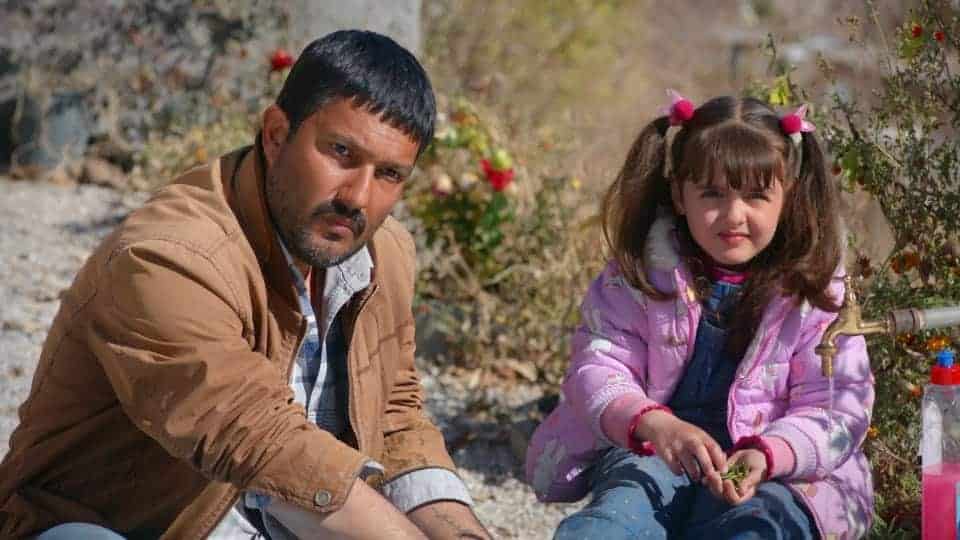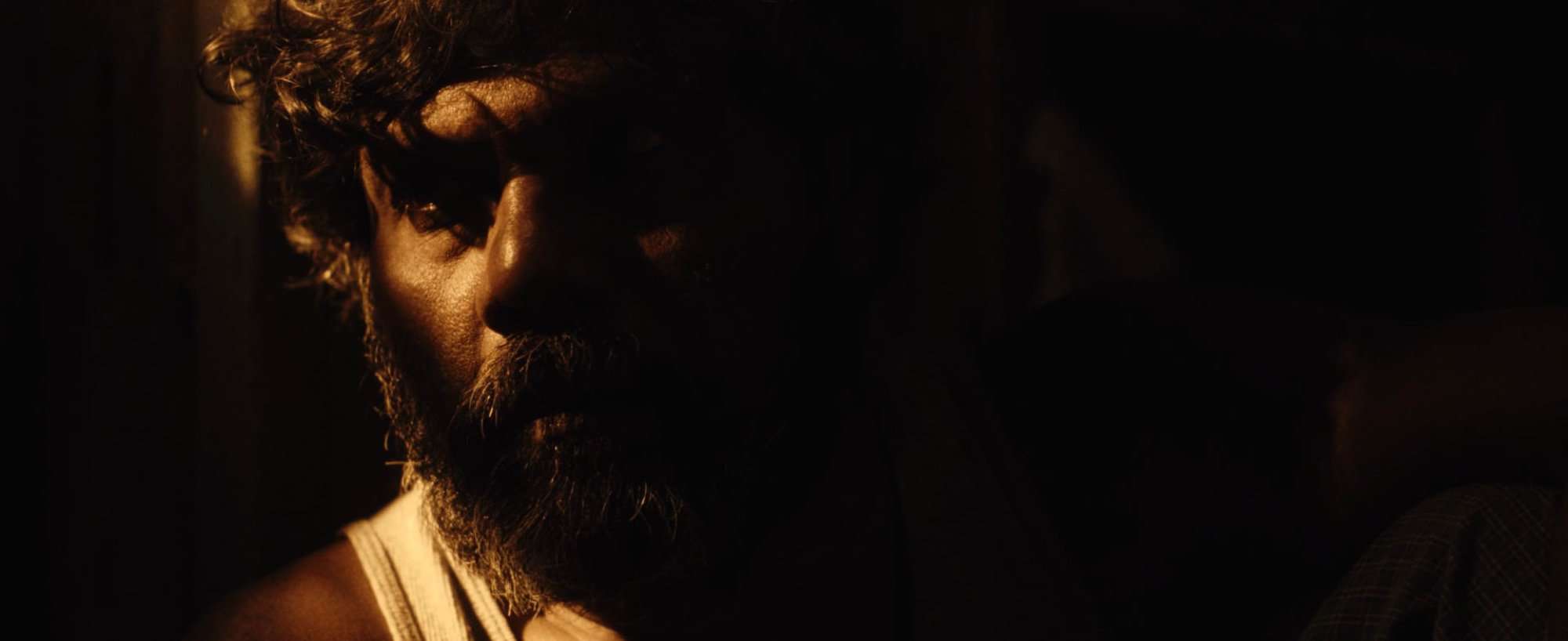Anthony Chen was born in Singapore in 1984. His short film “Ah Ma” (2007) won a prize in Cannes for best short film and his first feature film “Ilo Ilo” (2013) did even better. It won a lot of prizes, such as the Golden Horse Award for Best Feature Film and Best New Director with the most prestigious one being the Camera d'Or at the 2013 Cannes Film Festival. His second feature “Wet Season” was received well by film critics and was recently released in France.
We met with him during FICA Vesoul, where his film screened in avant première in anticipation of the French release and talked about the pressure to make new films, language and its role in society, infertility and other interesting topics.

It took you six years to make “Wet Season'. Does this have to do with the pressure of winning a prize in Cannes and the expectations that follow from that?
No, I think it has to do with the fact that I am a slow writer. It took me two years to write the first film and three years to write this one. And then planning, preproduction and casting all take time as well. Also, in the past few years I've produced two films which also takes up quite a bit of time. For instance, the casting for “Wet Season', in a way I feel I wasted 1,5 years on it because, unintentionally, I ended up working with the same two actors as in my first film.
I was wondering about that. How it was to work with them again?
It's quite special actually, because we know each other very well. Yeo Yann Yann, the main actress, it's the third time I worked with her. She worked with me before on “Ah Ma” (2007) and then again on my first feature film “Ilo Ilo” (2013). And Koh Jia Ler, who plays the boy, has grown up quite a bit since the first film. Actually, most people who have seen the first film have no idea that he was in the second film because they didn't recognize him at all. Because we know each other so well I can be very harsh for my actors and I expect a lot of them, but they also put up with a lot of my shit (laughs)
Can you give an example?
Koh Jia Ler was always two hours late for rehearsals. The only way to make sure he was on time every day, was to have him stay at my house. I literally woke him up in the morning and every day at bedtime; I confiscated his phone, because otherwise he would just stay up and watch YouTube until god knows what time. I put that in his contract and because he was still a minor his parents had to sign for it.

The role of the father-in-law, who had a stroke and can no longer speak is a challenging one. Was it hard to find the right actor?
It took us quite a while. Yang Shi Bin is a theatre actor and has been acting for over 50 years and still performs in three to four plays each year. But this is his first role in a film and it's also the first role where he doesn't get to say a single word. I took him to a private hospital with a lot of stroke patients and old people and he observed them for two weeks and we used prosthetics to pull his face down. But a lot of people don't think he is an actor at all, so he's very convincing.
You address a number of social issues in the film. One that runs like a thread through it is on the position of the Chinese language in Singapore society. The students really seem to hate the Chinese classes.
In the past, we used to have Chinese and English schools. In Chinese schools all the subjects were taught in Chinese, and then in English schools everything was taught in English except maybe two lessons a week that were Chinese lessons. In the 1970's, the government changed all schools into English schools. So, the only time you learn Chinese is during these lessons.
In the story, that is the reason the teacher is from Malaysia. Because in Singapore the standard of Chinese has gone down so much that we have to import Chinese teachers from Malaysia and China. She comes from a Chinese school in Malaysia, she doesn't know a lot of English. For these teachers, there is a sense that they are less useful to society. And because reports are written in English and a lot of meetings are done in English, they can't do a lot of administrative work. And as a result, they don't have many options in terms of promotions.
So, you don't need Chinese?
In Singapore, English has been the first language, the working language for a long time. Even when I was growing up, we spoke English at home. Both my parents went to very English schools and my dad can't even speak Mandarin. He can only write his own name in Chinese, but not even mine. Everything is done in English in Singapore, whether you are applying for a passport, a marriage certificate, a death certificate, all legal documents, emails, letters. So no, you don't need Chinese.
Is this a result of the prestige of English in Singapore and worldwide? Or is it class-related?
First reason, of course, is that we were a British colony. Secondly, it's the language that unites all races 70% of Singaporeans are ethnically Chinese and then 20% are Malays and then you have Indians and you have mixed race, but the language that unites everyone is English. And it became a very important language for Singapore to connect with the world.
But yes, class is also divided on language lines. From the fact that someone speaks English and from their accent you can actually tell a lot about their education and background. And if someone only speaks Chinese, they are always seen as lower class. Next to that, in the past 10-15 years there has been a new wave of migrants from mainland China. And in that case, language is used to draw a line between new migrants and those that have been living here for generations, even though ethnically we are the same race. Those that speak English are from Singapore, those that speak Chinese are from China

Another storyline focuses on infertility and the impact this has the main character and her husband. Why is this so important?
Fertility has always been important in civilization. If you look at cave paintings, there are always paintings about fertility. But I realized that in every single culture, we tend to avoid talking about it. Because it is very private but also out of shame. When I was researching for this film, doctors told me that many couples have IVF for 4 years or more. And of couples that don't succeed in having a child, 50% ends up in divorce. Because there is only so much disappointment and sadness a marriage can take. Like all the love and the warmth and beautiful stuff is erased from marriage because you are constantly reminded of what a failure you are as a couple and as an individual.
Also, “Wet Season” shows how men and women deal with problems in different ways. Men can't confront problems; they walk away or imagine they don't exist. But women, even when there is much trouble and pain, they have this resilience and strength inside that keeps them going. Looking back at my childhood and my mum or looking at my wife, I feel that in the end, it is always the women that pick up the pieces.
So, the main character is isolated because of language and because she's not pregnant even after years of IVF. And the relationship with the boy, it feels like more than just a romance?
On a basic level, the film is about connections between people. She lives in a household of three with her husband and father-in-law. But the husband is never around and the old man is half paralyzed. So, her home doesn't feel warm and comfortable, but cold and lifeless. The family is fractured and incomplete. But from the moment the boy comes into this home, it feels like they are a family, even though they are not related by blood. I like to explore the definition of what family is and also, the complexities of how people bond and make connections. The relationship between the teacher and the student, for me it's never just romance. It is also a mother-son relationship. It is almost as if he is the son she always wanted, and she is the mother that he never had, because his mother is always busy and working and never around.
Even though what they are doing is not socially acceptable, as viewer, you also understand them. Did you intend for us to feel that way?
For me, it is very important that I don't go into my films placing any form of judgement on my characters. My way of film making is not about taking a subject and looking at how I can sensationalize it. For me it is about respecting my characters and their journeys and really understanding where they come from and where they are going. Until I sort that out, I cannot make the film. Because if I don't understand my characters, their world and the story I'm telling, audiences will not understand it either. That is also the reason why it takes so long to write; it's not the pressure from winning the Camera d'Or, but the pressure I put on myself to be honest to my characters and to my stories. And that will continue forever because it is so easy to be seduced by other, easier, ways.
Does it help to produce other people's films? To take some distance from your own work and see how other film makers work?
If you produce other people's work and you see how they take decisions, or how they see the world or when you see them make mistakes, you learn from them. That is what I enjoy most about producing; that you learn and grow. This year I'm producing two films. There is a Singapore film that we are hoping to shoot in Korea at the end of this year and my company is involved in as a coproducer in a Thai film. But after that, I think I am going to take a step back because I don't want to make one film every six years… I made my first film at 28 and my second film in my 30's. In another six years I'll be in my 40's and I don't want to make only one film per decade.

What other projects are you working on at the moment?
Apart from those two, I'm writing another film set in Singapore. Actually, that film is going to be the third film of the trilogy with the same actors. I shot the boy at 11, then at 17 and then I'm going to shoot him again at 21. He has just gone into the army now, in Singapore you serve two years, and after that he will feel different again. I'm also writing a film set in China, a Chinese language film, a family drama as well, and I'm working on a project in the UK and one in the US. I'm casting one of those at the moment. If we can get the right actors, we will shoot that one this year. But I shouldn't talk about it, because I don't want to jinx it.
One final question about the title “Wet Season”: does it refer to the constant or is there a deeper meaning as well?
I knew when I was writing the script that I wanted to set it against the monsoon in Singapore. Most people's impression is that it is very bright and sunny, but I wanted to have rain in this film. Not only because rain is very atmospheric and cinematic, but also because it is an appropriate metaphor to describe her emotional landscape and at the same time it sums up my feelings about Singapore. If you watch the film carefully, you will realize that the sun never shines in Singapore. It only does so at the end of the film, in Malaysia. I go to Malaysia a lot and I have this feeling that there is always a sense of warmth and humanity there which I think is slowly disappearing from Singapore society. Even though we are getting richer and richer its society is getting colder and colder


